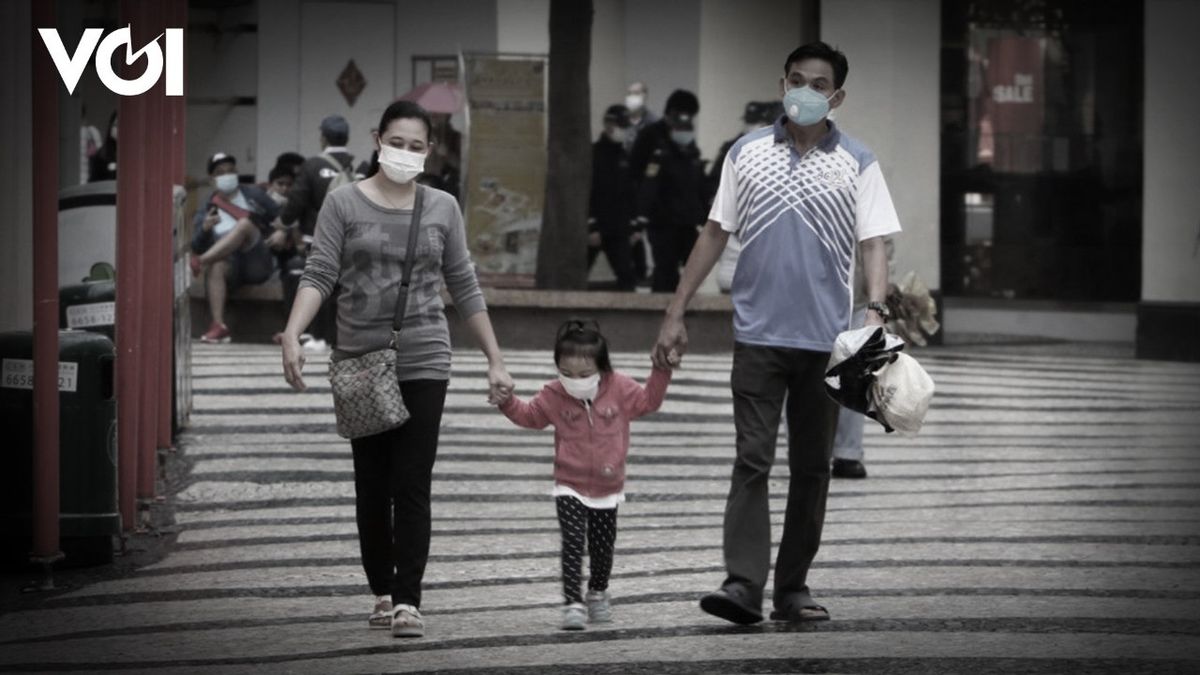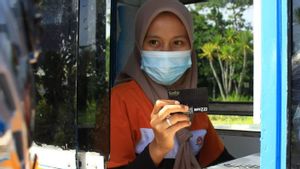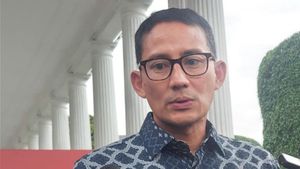
In the midst of talks about the poor handling of the COVID-19 pandemic in Indonesia, news emerged that said the COVID-19 pandemic would be endemic. On the one hand, this news can mean that the new corona virus will not disappear from the face of the earth, but on the other hand this can also be interpreted as a fresh breeze that brings the world into a better condition. Still part of VOI's signature Series, "A Year of Pandemic, A Million Positives".
The Nature survey reveals that many scientists believe COVID-19 will become endemic and that its effects will diminish over time. So does this mean that the corona virus pandemic will end soon? What would the world be like if corona became an endemic disease? And how can the COVID-19 pandemic change its status to endemic?
In a survey of more than 100 immunologists, virologists and infectious disease researchers, nearly 90 percent said COVID-19 would be endemic. That means, the spread of the virus or disease will be constant and tend to be controlled within a certain geographic area according to the Centers for Disease Control (CDC).
For example, the case of the spread of flu in the United States (US), and there are four types of endemic corona viruses that cause body fever. In Indonesia, one example of endemic disease is malaria in Papua.
Professor of Immunology from La Jolla University USA, Erica Ollman Saphire said if COVID-19 becomes endemic, it means that this virus will never disappear from the face of the earth. Even so, Saphire also said people would live better lives overall. "And do not get sick from the virus," Saphire was quoted as saying by CNBC. When did that happen?
According to Doctor Scott Gottlieb, a former commissioner of the US Food and Beverage Administration, if vaccinations get more massive and run smoothly, the transmission of COVID-19 can subside around spring and summer. "The infection rate will drop dramatically during the spring and summer," said Gottlieb.
History has repeatedly shown a change in the status of a pandemic to be endemic. For example, the Hong Kong Flu Pandemic that occurred in 1968. Before it subsided and was determined to be endemic, the disease caused by the influenza A (H3N2) virus, as quoted by Britannica, has killed one million people worldwide.
The same thing happened to the swine flu pandemic in 2009. According to the US CDC, the disease caused by the H1N1 virus first spread in the US, and spread rapidly throughout the country and the world.
The US CDC noted that between April 12, 2009 and April 10, 2010, there were 60.8 million cases in Abang Sam's country. The agency estimates that 575,400 people have died worldwide as a result of this pandemic. Even though the pandemic was officially declared over on August 10, 2010, the virus still continues to roam as a seasonal flu virus.

Photo illustration (Manuel Peris Tirado / Unsplash)
If a pandemic disease becomes endemic, Epidemiologist from Airlangga University (Unair) Laura Navika Yamani, it means that the spread of the virus is under control. "Endemics are something you can control," Laura told VOI.
Indeed, endemic diseases will always exist, but said Laura, the virus that causes the disease will remain dormant. This means that this virus can stay inside, but in a dormant state. "When the virus doesn't find the right host, it just keeps quiet."
For example, Laura gave an example when someone visited an area where malaria is endemic in Papua. According to him, people who visit the area will not immediately catch malaria as long as their immune system is not weak.
"Like dormant, the virus will be active when it finds a host that is weak. Dormant can survive without giving effect. But when it gets a house (people with weak immunity) it will be active," said Laura.
Even so, Laura said, changing the status of COVID-19 to endemic would not happen if it was not pursued. According to him, this really depends on the state of herd immunity. And of course this is closely related to the success of the vaccine program.

According to him at this time herd immunity could not be confirmed even though there had been vaccination efforts. Especially now that the number of COVID-19 vaccines is still limited.
"The problem is that the period of immunity is still under investigation. So it is still being monitored," said Epidemiologist Laura Navika Yamani.
Not to mention the problem of vaccination that has not been evenly distributed throughout all regions, especially Indonesia. "And in some areas the distribution is still ongoing. It could be that one area gets the vaccine, but in other areas there is still the spread of cases."
Not to mention the question of the potential for viral mutations. Because according to Laura this will have an impact on the effectiveness of the vaccine. "So while waiting for herd immunity to be reached, it is possible that a decrease in cases will occur, but it will not immediately eradicate (eliminate)."
For this reason, the vaccination program to achieve herd immunity is the key to this pandemic being endemic. "For example, if we already have herd immunity, the hope is that even if we visit endemic areas we will already have immunity and no problem," said Laura.
Follow this edition of the Writing Series: A Year of Pandemic, A Million Positives
The English, Chinese, Japanese, Arabic, and French versions are automatically generated by the AI. So there may still be inaccuracies in translating, please always see Indonesian as our main language. (system supported by DigitalSiber.id)












